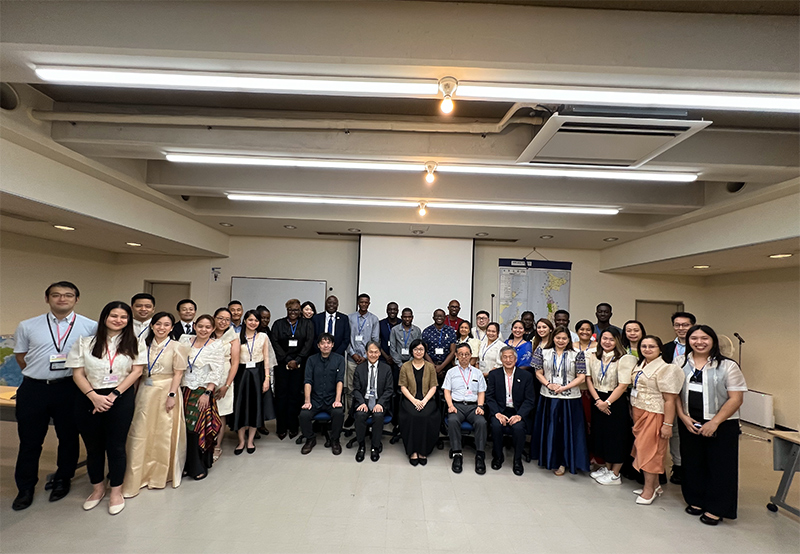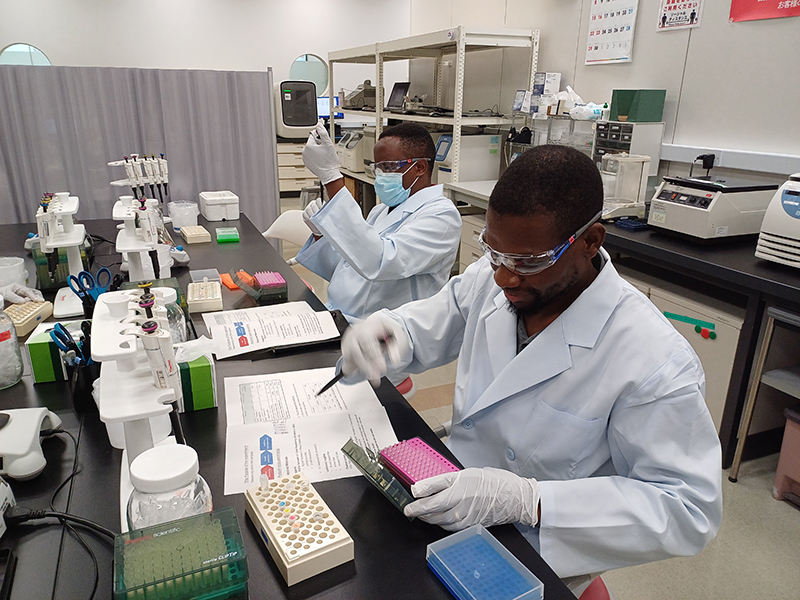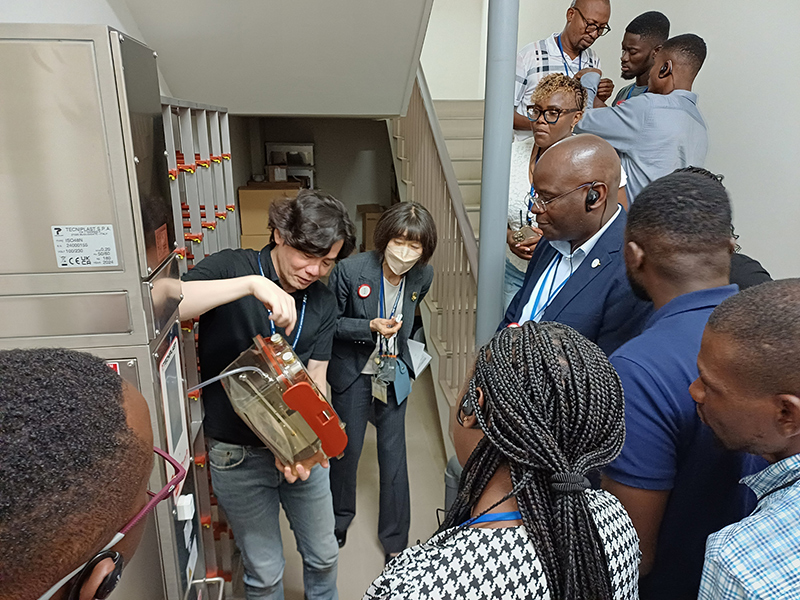Enhancing Laboratory Management through JICA's Knowledge Co-Creation Programs
Knowledge Co-Creation Programs (KCCP - JICA’s training) represent a vital aspect of technical cooperation facilitated by JICA in Japan. These programs encapsulate the collective knowledge that Japanese society has amassed, notably in organizational expertise and social systems, which can only be fully appreciated through direct experience. KCCP serves as a crucial mechanism for technical cooperation, fostering human resource development and addressing the challenges developing countries face.
The Project for Strengthening Laboratory-Based Surveillance for Infectious Diseases takes part in the KCCP. Five officers from the Zambia National Public Health Reference Laboratory (ZNPHRL) participated in two courses specializing in laboratory management: "Capacity Development for Laboratory Facilities Management Systems" (August 26 - September 9) and "Capacity Development for Laboratory Equipment" (August 26 - September 13).

Opening ceremony
It involved two segments in which one was a management course and the other one an Equipment course. In the first few days of the training, participants for both courses joined the site visit and lectures focusing on bio-risk management.

Participants learning various analysis methods

BSL3 Facility Tour
Through their engagement in these programs, participants gained the opportunity to exchange strategies from their respective countries—Ghana, the Philippines, and Zambia—thereby broadening their perspectives. Furthermore, the field visits significantly enriched the program by showcasing enhanced capacities and efficiencies that can be achieved through collaborations with academic institutions and the private sector. The Project will continue to follow up on what participants learned in this training so that they can contribute to improving laboratory management in the countries.
